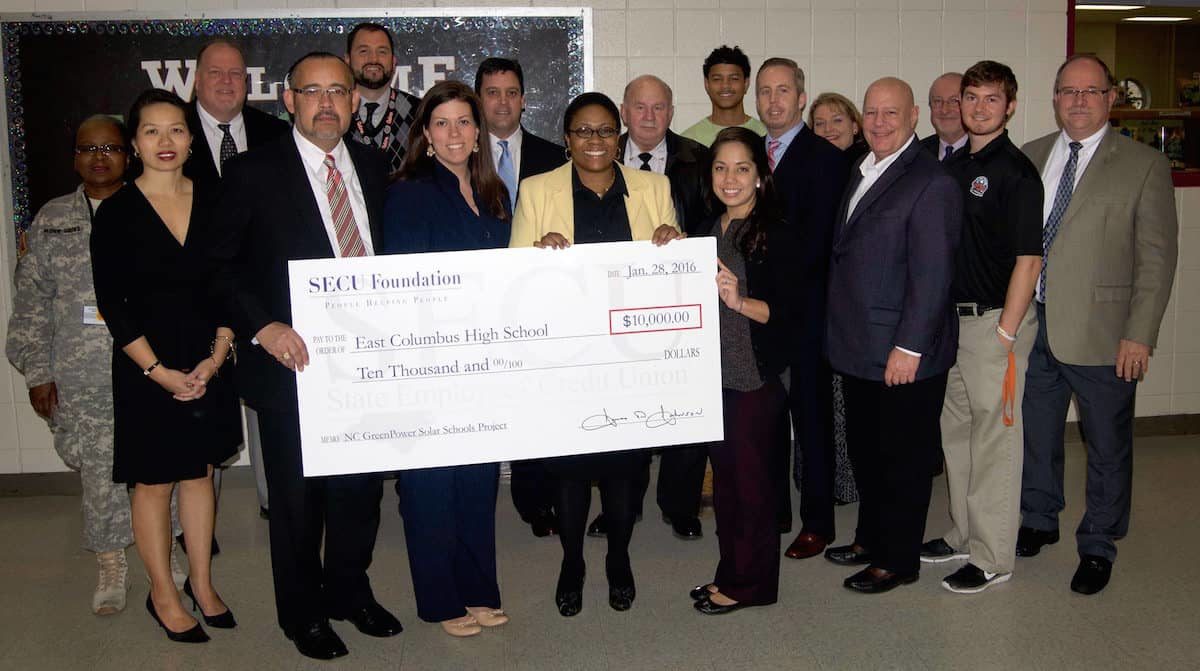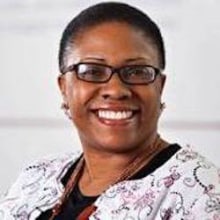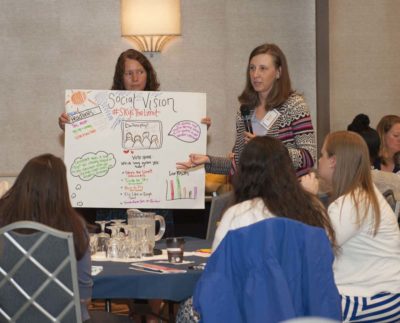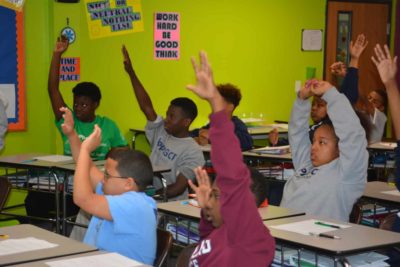
When it comes to education — and education reform — we speak much about looking at things from different viewpoints. As we grow in experience and come up with new ideas, we begin to adopt new perspectives. This new lens now guides us — as teachers and lifelong learners — as we implement research-based practices.
We search for programs, build relationships, and constantly review and reflect on our daily work. And through this, we aim to serve all children by providing them with content area understanding and life understanding in a fair and equitable, personalized way.
Nationally, the STEM lens is what is currently driving the conversation. As a business education teacher, I struggled at the beginning of the STEM wave trying to define myself and what I do in education. The broader educational community drives the messaging of the educational focus, and I was unsure as to how business education would fit.
Resources are driven to science, technology, engineering, and math disciplines in order to equip students with skills needed to be successful in STEM careers. To that end, a broad business curriculum is not immediately appealing to many students in this rural, southeastern NC community.
So, in order to navigate the STEM push and keep my content relevant, engaging, and connected, I searched for projects and opportunities that bridge business with STEM. Through the Kenan Fellows program, I was exposed to industry connections within the STEM disciplines and saw first-hand how those connections can affect a community. Many students will leave their local communities and go to college or find work elsewhere. But in what condition will that leave their home community? What economic opportunities will there be for people who remain?
Students need to be prepared to find and create work where they live if our communities are going to survive.
Over the last three years, solar farms have been on the rise in Columbus County, so much so that hearings and discussions regarding the installations have appeared in the local paper “above the fold.” Knowing that solar energy is now a significant part of the county landscape, I want my students to be prepared, to have an understanding of the education that is required for the field, and to be ready for any opportunities that arise as a result.
An ongoing project at East Columbus High School is the Gator Solar project, an interdisciplinary matching grant awarded by NC Green Power and the State Employees Credit Union totaling more than $30,000 dollars. This project is giving our school the opportunity to install a 5kW solar panel array on our campus. As a STEM school, a project such as this will provide relevant, real-world connection to an industry that is becoming a part of the larger landscape in Columbus County.
Once the panels have been installed, students will monitor and collect real world data and develop a plan with the local power company to work toward becoming a generator. Students will be engaged in the entire process, from learning the science and technology behind solar energy, to understanding the operation and management of a solar energy based business. Curriculum materials will be used across a variety of content areas, all unified around Gator Solar. This will be the launch of a greater school-wide focus on sustainability and conservation efforts.
Beyond looking at the STEM lens through which we view our work, we must also look at the frame, the structure that holds the lens. This frame provides support for the greater understanding that we use to guide our instruction. Through this process, I realized that the reason that the frame of business education is nearly lost in the conversation of student preparedness in STEM fields is it just makes so much common sense. Business is everywhere! Everything about our local, regional, national and global conversations says that we need increased capacity in STEM areas. And we need to educate tomorrow’s business leaders to understand this importance too.
We cannot create globally competent citizens if we do not first create locally competent students and communities.
Watch the video below to see students talking about the importance of the Gator Solar project.
https://www.youtube.com/watch?v=MJ8StCX4Ui4&feature=youtu.be
(Video by Kareem Shaw, a former student of East Columbus High School.)
Grant funding for this project was provided, in part, by NC GreenPower and the State Employees Credit Union (SECU) Foundation. NC GreenPower is a non-profit founded in 2003 whose mission is to improve the quality of the environment in North Carolina. The SECU Foundation, a 501(c)(3) charitable organization funded solely by the contributions of SECU members, promotes local community development in North Carolina primarily through high impact projects in the areas of housing, education, healthcare and human services. Since 2015, NC GreenPower, in partnership with the SECU Foundation, has been installing solar PV systems at K-12 schools across the state, providing teachers and students with valuable environmental educational tools.




